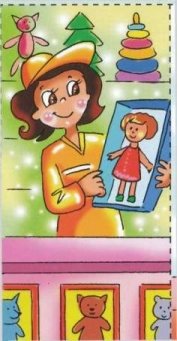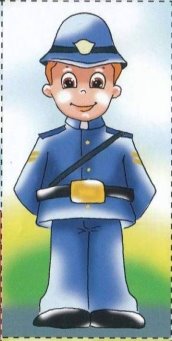Choosing a Profession
![]()



TOPIC. Choosing a Profession.
Objectives: to practise using personality vocabulary and other vocabulary related to the topic ’Career’; to develop students’ reading and speaking skills,to develop listening skills; to develop basic skills; to teach student to work together and to complete a task and reach a final goal; to develop student’s critical thinking.
Equipment: multimedia, writing papers, handouts, cards with the words.
Lesson type: integrated.
Epigraph:
“Every man is the maker of his own future”
(Richard Steele).
Procedure of the lesson
I. Introduction
1. Greeting
T: Hello dear students! I am very happy to see you and I hope you’ll be able to solve all my tasks for you today.
Ps: Good morning! We are glad to see you, too.
2. Announcing the subject and the aims of the lesson
Т: You know time flies and it won't be long when you finish your lyceum. There will be some roads open before you: to continue your education, to find a job, to join the army. It's up to you to decide. Your parents and teachers try to give you some advice. What will you be? Who helps you to choose your profession? The theme of our lesson concerns your future life that will be certainly connected with your future jobs. Please, tell me how and where do you imagine yourself in 10 years?
II. Warming - up
Т:
All professions are important,
All professions are necessary.
Do you want to choose any profession?
There are many different professions: What will you be? What will your friend be?
An officer
A designer
A correspondent
An operator
A teacher
A doctor
A nurse
A film maker
A nanny
A litter man
A businessman / businesswoman
As for you, what professions are useful, interesting?
Occupations: What is my job?
- I work in an office. I type letters and answer the phone.
- I go to court and defend people's rights.
- I work in a hospital and take care of sick people.
- I work in a school and help people learn.
- You pay me when you buy something at the store.
- I take care of sick animals.
- I put out fires.
- I wear a uniform and a badge. I help keep your neighborhood safe.
- I help keep your teeth clean. I deliver letters and packages to your home.
Key: secretary, lawyer, doctor or nurse, teacher, clerk or salesperson, vet, firefighter, police officer, dentist, mailman.
III. Main part of the lesson
1. Substitution tables
1) Why should teenagers (young people) make a right choice of a future job and profession?
|
We Teenagers
|
should must |
Make a right choice of a future profession |
because |
our (their) career better jobs opportunities high living standards realization of our (their) ambitions |
depend on it |
2) What can influence the choice of a job or profession?
|
The teenagers’ choice My choice |
can be |
influenced encouraged |
by |
your friend’s example personal qualities |
|
The choice of a job
|
can be |
Influenced encouraged |
by |
the thing you are good at your ambitions your abilities your skills your bend for a job the necessity pressure of your parents |
3) What should a person know before choosing a future profession?
|
We Teenagers |
should must |
analyze know learn |
Abilities skills and experience what abilities to develop qualities of jobs, professions advantages / disadvantages of jobs professions |
2. Vocabulary training
OCCUPATION, PROFESSION, TRADE
The meanings of the word ’profession’ and of the Ukrainian / Russian word of the same root are not identical. The English equivalent for професія / профессия is ‘occupation’, which means any kind of employment and therefore has the widest application. The meaning of ‘profession’ is much narrower.
Occupation, employment, business, trade or profession.
- What is his occupation?
- We should choose an occupation according to our abilities.
Profession, an occupation that require special education or training, as: the profession of lawyer, doctor, teacher, architect, etc.
- The famous composer Borodin was a chemist by profession.
- “What is your profession?” “I am a teacher”.
Trade, an occupation connected with manual and mechanical labour and the use of machinery or tools, as the trade of a carpenter, blacksmith, bricklayer, shoemaker, etc.
- Well, well, don’t be afraid; we won’t make an author of you., while there’s an honest trade to be learned, or brick-making to turn to.
(Dickens)
3. Reading activity
1). Pre-reading task
Choose three adjectives from the Key Words that describe you best.
Careful
Helpful
Creative
Logical
Confident
Motivated
Emotional
Organized
Flexible
Patient
Generous
Reliable
2) While-reading task
Read the questionnaire. Decide what you would do in these situations.
EVERYONE ‘S GOOD AT SOMETHING!
Do this personality test and find the right career for you?
1. A friend is having problems with a school project. She asks you to help her. What would you do?
a) Help her after school. Tell her to phone you if she has any more problems.
b) Give her a plan how you would do the project. Tell her the names of the books where she can find information.
c) Suggest ways of making the project attractive and more interesting.
d) Ask her to organize work timetable so she finishes the project on time.
2. You are working for charity in a village in Colombia. Your boss tells your team to repair an old bridge cross a river. What would you do?
a) Ask the villagers what they want. Ask them to give you advice.
b) Choose a special job that you think you could do well, such as collecting wood. Then plan how you could do the job efficiently.
c) Try to improve the design of the bridge. Look at the river and see if there is a better place to build the bridge.
d) Ask everybody in your team to do specific jobs. Make sure they know what to do. Choose one of the hardest jobs yourself to set an example.
3. You are on a school trip when a coach has an accident. No one is hurt, but you are stuck on a forest road with no traffic. It is getting dark and it has started to snow. What would you do?
a) Talk to anybody who looks afraid or worried. Tell them not to worry.
b) Keep calm. You know that the situation is not really dangerous and someone is going to get help.
c) Tell your friend a story, while you are waiting for help.
d) Take control of the situation. Tell everybody not to panic. Ask a small group to go to the nearest village to get help. Tell everybody on the bus to put on more clothes to keep warm.
4. Last week your teacher asked your class to perform a short play for the school. So far, nothing has been done and there are only ten days before the performance. What would you do?
a) Offer to take part and ask others to do the same. Help people to learn the lines.
b) Organize some of the practical things, such as costumes, scenery and sound effects.
c) Think of ideas for the play. Write the dialogue and show it to the class.
d) Offer to direct the performance. Choose people for different roles.
Read the key to the answers. Does the description fit your personality? Would you like to do the kind of jobs that the key suggests for you?
Key
If most of your answers were:
A. You are helpful / patient / generous. Your ideal job is one in which you work with people — helping, training or curing them, e.g. doctor, nurse, teacher, social worker.
B. You are reliable / organized / logical / careful. You are good at practical things. You are a good person to work with figures, computers, machines, plants and animals.
C. You are emotional / creative / flexible. You are imaginative and creative and you would be good as a journalist, designer or artist of some kind.
D. You are strong / confident / motivated. You are a natural leader and would be a good manager of other people in business.
If your answers were mixed, you are probably suited to a job in which you can use your different skills and abilities. Example manager of a computer company which combines practical abilities (B) and leadership (C).
Match the jobs with the qualities you need (+) and don’t need (–) to do them in your opinion.
Example: electrician: + logical — emotional
JOBS
Architect, computer programmer, electrician, engineer, farmer, hotel receptionist, journalist, lawyer, fashion model, plumber, politician, shop assistant, soldier, tourist guide, vet
QUALITIES
Careful, confident, creative, emotional, flexible, generous, helpful, logical, motivated, organised, patient, reliable.
4. Speaking activity
Game “Relatively speaking”
How to use the game
Students play this game in groups of three or four. Copy one set of picture cards for each group. Copy a rules sheet for each group.
1. Place the picture cards face down on a pile in the middle of the table.
2. Player 1 take the top card from the pile. Look at it, but don’t show it to the others!
3. Player 1 gives a definition of a place / person / machine on his / her card. For example, for a picture of a hospital, This is a place where you go when you are sick. Or if you want to make it more difficult for the others to guess, you can say, This is a place where nice people bring you tea in bed.
4. The other players must try to guess the name of a place / person / machine.
5. The first player to guess correctly can keep the card.
6. If no one can guess, play 1 can keep the card.
7. Then it is the next player’s turn.
8. The player with most cards at the end is the winner.
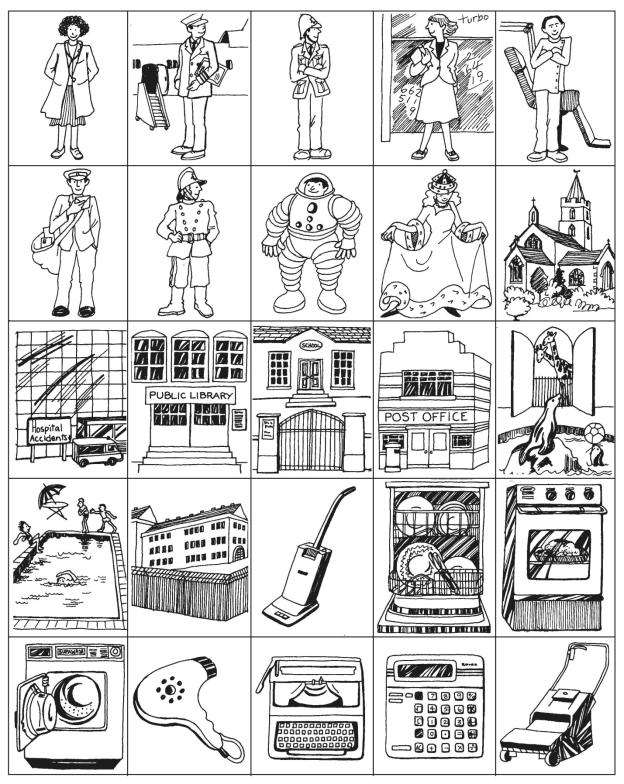
5. Listening activity
T: Now listen to the interview and be ready to discuss it.
FACING THE REAL WORLD
— Have you already begun developing your plans for the future?
— It is very difficult to give a definite answer right now. But every time I am asked the question “What do you want to be?” I feel nervous. I usually never tell the truth and say “I haven’t the slightest idea” and try to sound mysteriously.
— But why?
— That makes other people feel more nervous than me.
— Have you ever turned to your parents for advice?
— Oh. My mother is convinced that I should follow in the footsteps of my father and become a lawyer. My granny thinks that I should find a nice wealthy man to marry. And my father says “Just do what makes you happy”. My uncle encourages me by promising a job in his company. Being child I wanted to be like a cashier in the supermarket with long hair, blue eye shadows and long fingernail moving the cash. But my mother would say “You are not suitable for the job like that. You are too smart”. It is very difficult to face the real world after being spoonfed with knowledge at school. And the question “What do you want to be?” never used to be threatening like now.
What if I choose the wrong thing and feel regret a mistake in future? Of course like everyone I have some skills and interests and inclinations. But they seem to be undeveloped and may not seem outstanding.
I realize that I should plan out the rest of my life and explore my choice from every angle, but I have never thought more than six months ahead. There is one thing I know I wouldn’t like to be “a square peg in a round hole”.
Questions for discussion
1. What problems are involved in this interview?
2. Why is the girl afraid to enter the real world after being spoonfed with knowledge at school.
3. What does the real world mean for her? And for you?
4. Why does her mother say that she is too smart to be a cashier?
5. Does it mean that a man doing a less prestigious work is a loser?
6. The girl doesn’t want to be a square peg in around hole. Do you know someone who is a square peg in a round hole?
7. What would you do if you were in the same situation? Give your piece of advice.
6. Writing
1) Complete the sentences with the jobs in the box.
ARCHITECT CHEF ESTATE AGENT MECHANIC
NANNY NURSE SURGEON TRAVEL AGENT
- A ________________ is an experienced cook.
- A ________________ takes care of sick people.
- An _______________. repairs car engines.
- A________________. designs buildings
- A ________________. sells holidays,
- A________________..looks after children
- A________________.. performs operations
- An _______________. sells houses.
2). Find
- Match the words with pictures (додаток 1)
- Make words (додаток 2)
- Missing vowels(додаток 3)
- Match the dialogs with the professions (додаток 4)
IV. Summarizing. Marks
T: Have you learned anything new? I am sure English will help you in your future career and you’ll choose your future job correctly! I would like to finish our lesson with the words of
“Every man is the maker of his own future”
(Richard Steele).
Your marks are…
V. Homework
1. Express your point of view on your career opportunities orally and in writing form.
2. What are you going to do when you leave your lyceum? What are you going to choose as a career? Why?
Start like this:
After leaving my school I would like to study at one of the universities. I simply can’t tell you what I am going to study yet. Well, I have thought of becoming… ( a teacher of…). My parents share/do not share this idea, they want me to become… (a doctor). They may be right , because a… (doctor’s) work is more respected and acknowledged in a society. But I am not really persuaded by them saying that I would earn more money and I would have a better life as… (a doctor). This job is simply not for me. I would rather choose… (teaching ) than… (medicine) as a career. I have no doubts about the poor financial prospects, but, you know, money is not everything. It is much more important for me to do something I really love.
ВИКОРИСТАНА ЛІТЕРАТУРА.
- Карп’юк О.Д. Англійська мова. Рівень стандарту. 10 кл. //Тернопіль. «Лібра Терра».2011 р.
- Мясоєдова С.В. Англійська мова. 10 клас: Плани конспекти уроків( до підручника О.Д. Карп’юк)// Х.: Ранок,2012.
- Англійська за новими програмами: 10 клас/ упоряд. Т. Михайленко.-К.:А64 Шк. Світ,2010
- КіктенкоТ.М. Англійська мова .Рівень стандарту.// Х.: Основа, 2011р.
- Дерябіна С. І. Jobs and professions//Х.:Основа, Англійська мова та література, №1, 2013.
- І.П.Лисовець. Усі уроки англійської мови.10 клас. Рівень – стандарт.-Х.:Вид. група «Основа»,2010.
Додаток 1

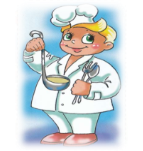 З'єднайте назву професії з відповідними малюнками
З'єднайте назву професії з відповідними малюнками
![]()
![]()


![]()
![]()


![]()
![]()
![]()
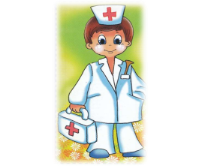

![]()
![]()


![]()
![]()


![]()
Додаток 2
![]() З поданих частин слів утворіть назви професій.
З поданих частин слів утворіть назви професій.
![]()
![]()
![]()
![]()
![]()
![]()
![]()
![]()
![]()
![]()
![]()
![]()
![]()
![]()

![]()

![]()
![]()
![]()
![]()
![]()
![]()
Додаток 3
Вставте пропущені букви, щоб утворились назви професій
- CoSMoNaUT
- T……CH…R
- D…CT…R
- L…BR…R……N
- DR…V…R
- SH…P…SS…ST…NT
- F…R…M…N
- J……RN…L…T
- P…L…T
- B……LD…R
- C……K
Додаток 4
З'єднайте діалоги з відповідними малюнками.
|
|
|
|
|
|
||
|
|
|
|
|
|


про публікацію авторської розробки
Додати розробку

